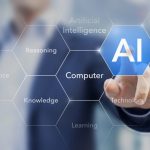What value does Extended Detection and Response (XDR) bring to the cybersecurity market? [Q&A]

As organizations adapt to hybrid working models and modernize business practices, so too must cybersecurity programs.
We talked to Rupesh Chokshi, VP at AT&T Cybersecurity, to discuss key challenges and how XDR is becoming an important framework, helping organizations consolidate and improve security operations across the entire network, from endpoints to the cloud and beyond.
Why enterprise automation is key to digital transformation [Q&A]

In the wake of the COVID-19 pandemic, many enterprises turned their attention to digital transformation projects. But a talent shortage has held things back, leading many to consider automation as a way to alleviate the burden today's organizations are experiencing.
We spoke to Charlie Newark-French, chief operating officer of human centered automation company Hyperscience, to find out more about the balance between humanity and AI, automation's role in the digital enterprise, and automation's role in digital transformation.
Why low-code is the future for enterprise development [Q&A]

Developers in many organizations are under pressure to produce new applications and updates faster than ever before and this highlights the weaknesses of traditional methods.
Using a low-code approach by contrast allows allows the automation and streamlining of the development lifecycle. We spoke to Brian Sathianathan, the chief technology officer at Iterate.ai, to discover more about low-code and when it is and isn't the best option.
Modernizing your intranet to improve the employee experience [Q&A]

Whether they are working from the office or at home, employees need a seamless digital experience to stay engaged, productive and do their jobs effectively.
Larger enterprises often use an intranet, but delivering an improved experience requires a new way of thinking about an organization's intranet, using it as a resource to not only meet employees needs where they are but to improve their day-to-day experience.
Why hybrid is the future of AI [Q&A]

Artificial intelligence, along with machine learning, deep learning and natural language understanding are increasingly being combined to create a hybrid approach.
Harnessing a range of techniques in this way helps data scientists to produce the best results. We spoke to Luca Scagliarini, chief product officer at expert.ai to find out more about how this approach can work and why we can expect to see it becoming more common.
Breaking bias -- ensuring fairness in artificial intelligence [Q&A]

Artificial intelligence is creeping into more and more areas of technology, increasingly becoming the basis for commercial and other decisions, but bias can find its way in to AI systems and lead to results that are neither fair nor objective.
To prevent bias in AI businesses need to understand the different types of bias that can occur and know what’s needed to address each of them. We spoke to Alix Melchy, VP of AI at Jumio, to find out about the problems AI bias can cause and what enterprises can do about them.
Bots-as-a-service and why they might interest shoppers [Q&A]

Bots tend to have a poor reputation, launching cyber attacks, beating you to the best bargains on eCommerce sites and generally being a bit of a pain in the Net.
Nowadays bots are frequently available 'as-a-service' so it's possible to rent one for a period of time to execute an attack. But, according to research for Cequence Security, 32 percent of respondents say they've used a shopping bot before and 38 percent say they might in the future. So that's 70 percent of people who are thinking, 'If you can't beat them, join them.'
The challenges of protecting industrial control systems [Q&A]

Industrial control systems are often critical to things like power and water supplies. In theory they should have the strongest protection available.
In practice, however, this isn't always the case. It's estimated that 91 percent of industrial companies are vulnerable to cyberattacks. So what can businesses do to protect themselves and to recover quickly if they do get attacked?
How smart technology is changing the supply chain [Q&A]

Suppliers, distributors and customers alike are faced with rising supply chain costs, partly as a result of disruption caused by the COVID-19 pandemic.
The idea of smart contracts, using blockchain and the IoT to automate contract execution, has been around for a while. But is now the time for them to start coming into their own, and how can they benefit enterprises?
How next-generation remote desktops are giving power users more flexibility [Q&A]

Driven by the pandemic, remote work has been normalized in many offices. But while it works for many tasks it's not so useful for power users.
Think architects, 3D developers, game developers and designers who rely on high-powered computing to get their jobs done. They can't easily take a $50,000 workstation home to do their work.
Why real-time analysis is key to making better use of data [Q&A]

Businesses of all types generate ever larger quantities of data, but while this should be an invaluable resource to drive decision making the sheer volume can create difficulties.
Analyzing data in real time is the ideal but it can be surprisingly hard to achieve. We talked to Ariel Assaraf, CEO of data streaming specialist Coralogix, to find out how enterprises can face the challenges posed by real-time analysis.
The machine identity crisis -- and what to do about it [Q&A]

Every single networked machine relies on an identity -- in the form of cryptographic keys or digital certificates -- so that it can identify itself and communicate with other machines securely.
In the wrong hands though machine identities can enable cybercriminals to appear trustworthy, slip past security defences undetected, gain access to networks, and exfiltrate data. Yet organizations still overlook the importance of protecting them.
How businesses can improve their third-party security [Q&A]
Using AI to deal with ransomware attacks [Q&A]

Ransomware is a particularly heartless -- though undeniably lucrative -- endeavor. Criminals target schools, vital infrastructure, and even patient records in attempts to cash in. As a result, many security professionals put defensive ransomware strategies at the top of their to-do list.
Understandably, most of these strategies start with measures that minimize the footholds attackers can find. Checking inbound emails for ransomware payloads, giving users training on safe internet usage, and monitoring the network for suspicious activity are essential elements of an effective anti-ransomware strategy.
How technology is looking to replace passwords [Q&A]

We've been told for a long time that passwords are on the way out. Indeed no less a figure than Bill Gates predicted the death of the password at 2004's RSA conference, yet we still rely on them for managing much of our day-to-day access.
But things are starting to change. Patrick McBride, CMO at Beyond Identity, believes that the technology to eliminate passwords and replace them with something more secure is starting to take off. We talked to him to discover more.
Recent Headlines
Most Commented Stories
© 1998-2025 BetaNews, Inc. All Rights Reserved. About Us - Privacy Policy - Cookie Policy - Sitemap.
